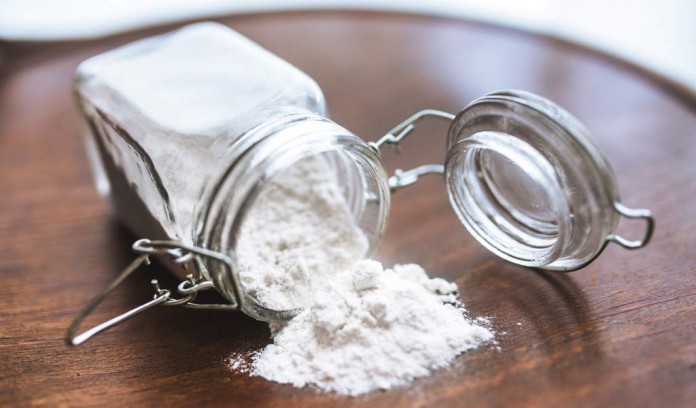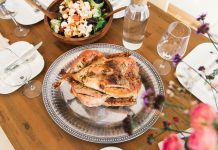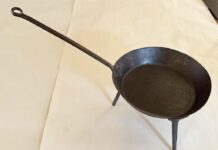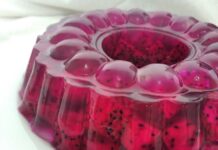Many of the baked goods we enjoy making during the holidays and treating ourselves to when we go out to eat originated in Europe. The biscotti we dunk in our coffee came from Italy. The kuchen we remember our grandmothers making came from Germany. Macarons are French. Mascarpone is Italian. Trifles are English.
If you look up European recipes online, you’ll notice that measurements are almost always given in grams and milliliters. If you’re not a metric units whiz, or if you don’t have a kitchen scale, this can be confusing. How do you know how much flour to purchase or how much sugar to set aside? And what’s that conversion for Celsius to Fahrenheit that you learned in junior high?
Below you’ll find metric-to-standard conversion charts for liquid and dry ingredients, as well as conversions for common baking temperatures and pan sizes. Reference them during your next European baking experiment.
Note: If your recipe indicates a specific metric measurement that’s different from the following charts, follow your recipe. The following measures are rounded up or down for ease of measuring.
Metric to standard dry ingredients conversion chart
Metric measurements vary for different dry ingredients. ¼ cup of all-purpose flour equals 32 grams, but ¼ cup granulated white sugar equals 50 grams. AllRecipes offers metric-to-standard conversion charts for many common dry ingredients.
Metric to standard liquid ingredient conversion chart
Metric measurements differ slightly for liquids and liquid solids:
| Metric for liquid solids (butter) | Metric for liquids (milk) | Standard |
| 1 mL | 1 mL | 1/4 tsp. |
| 2 mL | 2 mL | 1/2 tsp. |
| 5 mL | 5 mL | 1 tsp. |
| 14 mL | 15 mL | 1 Tbsp. (3 tsp.) |
| 28 mL | 30 mL | 1/8 cup |
| 57 mL | 60 mL | 1/4 cup |
| 76 mL | 80 mL | 1/3 cup |
| 113 mL | 120 mL | 1/2 cup |
| 152 mL | 160 mL | 2/3 cup |
| 171 mL | 180 mL | 3/4 cup |
| 227 mL | 240 mL | 1 cup |
| 454 mL | 480 mL | 1 pint |
| 908 mL | 960 mL | 1 quart |
Metric to standard pan conversion chart
Pan sizes for European recipes may be given in centimeters instead of inches. Here are the equivalents for some common baking pans:
| Metric Pan Sizes | Standard Pan Sizes |
| 33 x 23 x 5 cm | 13 x 9 x 2 inch pan |
| 20 x 20 x 5 cm | 8 x 8 x 2 inch square pan |
| 23 x 23 x 5 cm | 9 x 9 x 2 inch square pan |
| 20 x 4 cm | 8 x 1.5-inch round pan |
| 23 x 4 cm | 9 x 1.5-inch round pan |
| 20 cm | 8-inch pie pan |
| 23 cm | 9-inch pie pan |
| 25 cm | 10-inch pie pan |
| 23 x 13 x 6 cm | 9 x 5 x 3-inch loaf pan |
Metric to standard temperature conversion chart
European recipes usually give oven temperatures in Celsius.
| Celsius | Gas Mark | Fahrenheit |
| 160 C | 3 | 325 F |
| 180 C | 4 | 350 F |
| 190 C | 5 | 375 F |
| 200 C | 6 | 400 F |
| 220 C | 7 | 425 F |
| 230 C | 8 | 450 F |
And here’s a reference for basic water temperatures that you may need for certain recipes:
| Celsius | Fahrenheit | |
| Water Freezes | 0 C | 32 F |
| Room Temperature | 20 C | 68 F |
| Water Boils | 100 C | 212 F |

















A few hints: in metric recipes butter is not measured in ml, but always in grams. At least in Germany.
Teaspoons and tablespoons actually exist in metric cookbooks, too, so no need to convert in this case.
Easiest way for dealing with metric recipes is to invest 20$ in a metric kitchen scale and a metric measuring cup for liquids. No other devices needed and no hassle with conversion.
I went to work for an Austrian baker after I retired,part time. OMG! It took me the longest to get used to metric. Very different from US.
I just bought myself a scale that weighs both(winter project is to make pasta). The book I bought has non other than metric measures. But I’m used to it now!
Wish I read your post awhile back! Thanx!
I’m exited to try this apple recipe Upstate New York produces excellent apples. Struggling with the pan size you are using. I’ve examined conversion charts, not much help. Any ideas?
What size pan is recommended for the recipe you’re using?
I’m a US nurse who has always used the metric system in drug calculations, etc, so this isn’t hard at all for me. I’ve never had the need until recently to convert Celcius to Fahrenheit until recently, as the US is swinging that way, too.